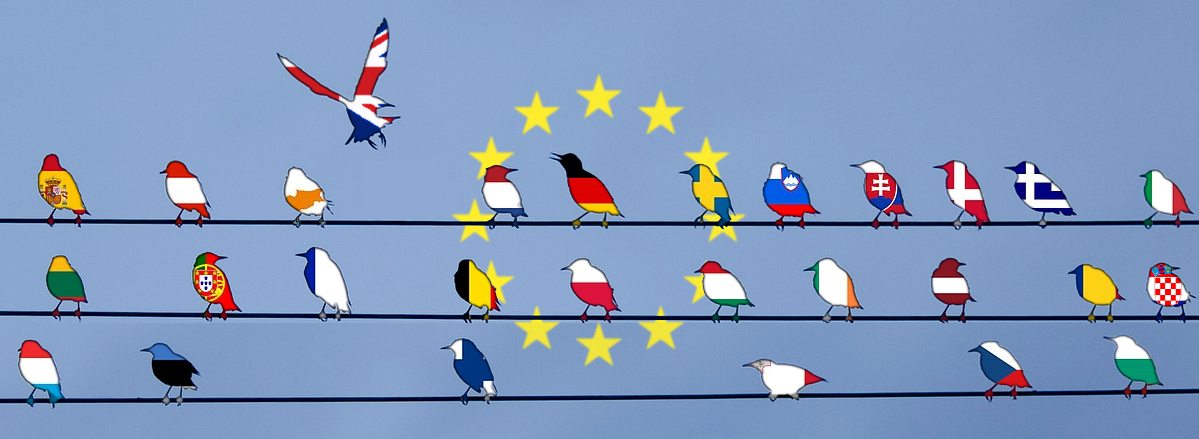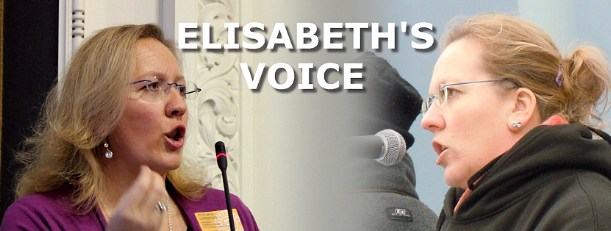Elisabeth Sabaditsch-Wolff’s book about her encounter with Austrian “justice”, The Truth Is No Defense, will be published next month by the New English Review Press.
The Truth Shall Get You Jailed
by Elisabeth Sabaditsch-Wolff
In the past week, two eerily similar polls — one in Germany (available in German only) and one in the United States — made it into the public sphere. Both concerned the pillar of freedom, free speech, and both sadly portend the end of what countless brave souls on both sides of the Atlantic who died on so many battlefields valiantly fought for.
November 2019 marks the thirtieth anniversary of the fall of the Berlin Wall, which ostensibly ushered in the end of the Communist iron grip on Eastern Europe. Following the end of World War II, Communism had brutally separated the free West from the subjugated East, and nowhere was this partition more glaringly obvious than in individual liberty or lack thereof. Thirty years have now passed since that glorious November day. I watched the tearing down of the wall by East Berliners desperately seeking freedom — the freedom to speak, think, move, exist — live on television, having visited East Berlin only a year before. I was ecstatic for the people of East Germany, hoping they would be able to savor their hard-fought freedom as I have done over and over.
The widespread disillusionment that has set in over the past decades pains me. Just a few days ago, the Post-Communists won the parliamentary elections of the state of Thuringia in what was once East Germany, and I am quite certain post-election analyses will show that the block of Post-Communist voters consists of mostly young people who have no recollection or experience of the evil of Communism.
And so it comes as no surprise when a well-known German opinion research institute publishes a poll indicating that “nearly two-thirds of [those polled] are convinced that nowadays one must be very careful regarding the topics about which one can speak freely because there many unwritten laws indicating which opinions are permissible and which opinions are not permissible.” In addition, 58% of those polled no longer feel safe speaking freely in public, with only 17% agreeing that they can voice their opinion freely on the Internet. More than 40% sense that political correctness is overemphasized, while 35% have decided for themselves to voice their opinions only in a private setting.
The German poll is complemented by a — frankly, frightening in its ramifications — US poll: a whopping 51% of Millennials call for fines and even jail time for “hate speech.” In a survey conducted by the Campaign for Free Speech, more than 60% call for restrictions on speech in some way. While the Campaign’s director finds the results “frankly extraordinary,” they are hardly surprising. Speech restrictions coupled with hefty fines and, in some instances, even jail time have become the norm in Europe, with my case being one of countless others. Moreover, the results of both polls are what free speech activists on both sides of the Atlantic have been warning about for at least the past decade: at international forums such as the United Nations and the (perhaps lesser-known) Organization for Security and Cooperation in Europe, these very speech restrictions have been not only concocted, but also weaponized and successfully applied. In one case in point, at an official OSCE forum in Vienna in 2015, which I attended, we were told that speaking the truth may constitute “hate speech”, because “sometimes truth is difficult.” Secretary General Antonio Guterres of the United Nations calls for stepping up international efforts to suppress “hate speech.”
Continue reading →
 President Trump said in an interview that he supports an alliance between the Brexit Party and the “Conservatives” in December’s elections in the UK. Mr. Trump said that a Labour government under Jeremy Corbyn would be a disaster for the country.
President Trump said in an interview that he supports an alliance between the Brexit Party and the “Conservatives” in December’s elections in the UK. Mr. Trump said that a Labour government under Jeremy Corbyn would be a disaster for the country.



